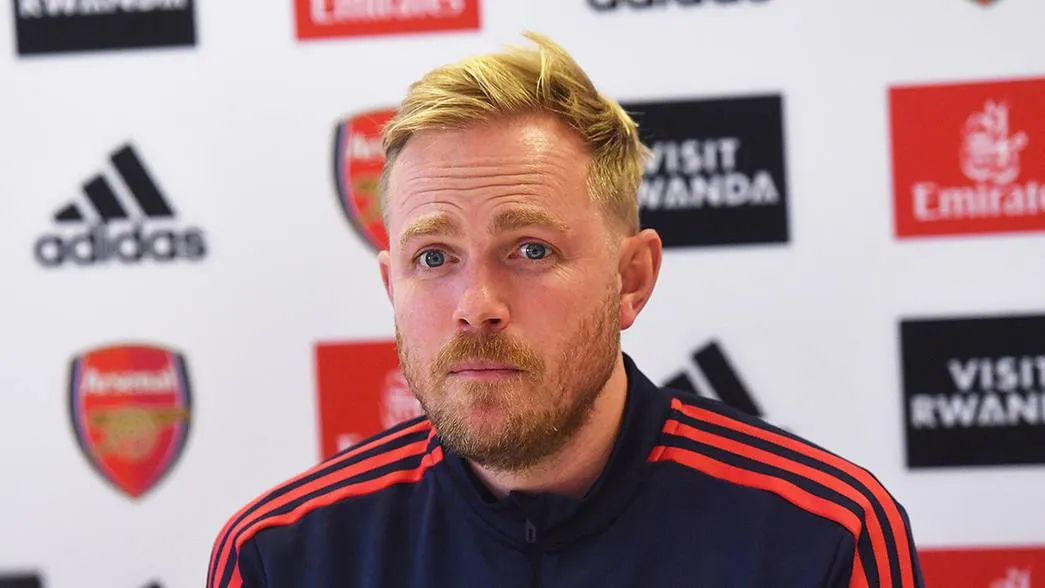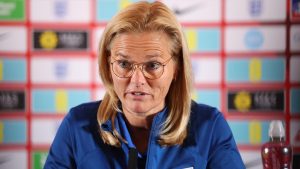
ARSENAL Women head coach, Jonas Eidevall, has openly acknowledged the “problem” of a lack of diversity within the squad but believes this issue extends beyond just Arsenal, affecting women’s football across England.
Eidevall made these remarks during a pre-Manchester City press conference at London Colney on Friday (3), responding to the widespread criticism that arose after the club’s 2023/24 squad photograph featured no players from diverse backgrounds.
“I haven’t seen much reaction online, but I think where we come from, north London, we are very proud of our community,” Eidevall stated.
“The history of the club, both the men’s first team and the women’s first team, has a very proud history of players coming from diverse backgrounds as well and made the club very proud of that. So, us not having that diversity in the women’s first team today – of course, that is a problem.”
The Swedish coach went on to call on the entire Women’s Super League, as well as the Football Association and other clubs, to work collectively towards improving diversity within the women’s game.
“I think women’s football has a diversity problem in that, in getting especially people of colour involved more in football, not only at the top level but also at the grassroots level, and I think we have to work with it but also the FA and other clubs,” he added.
Disappointed Arsenal supporters criticised the lack of diversity and players of race in their most recent team on X, previously Twitter.
Arsenal faced significant backlash for their initial silence on the matter, but on October 22, the club released a statement acknowledging the need for increased diversity in their women’s first-team squad.
It said: “We acknowledge our current women’s first-team squad does not reflect the diversity that exists across the club and the communities we represent. Increasing participation among young women and girls from diverse backgrounds is a key priority for us at academy level, with specific measures in place to improve pathways and accessibility.”

Earlier this year, Sarina Wiegman, the manager of the England Women’s national team, agreed things are “not going to change overnight” in light of the lack of diversity in the women’s game.
“I’m happy with all the things we’re doing but that doesn’t change overnight,” Wiegman said.
Arsenal’s public acknowledgment of the diversity challenge in their women’s first-team squad, along with Eidevall’s call for collective action, signals a growing awareness of the issue and a commitment to improving diversity in women’s football.